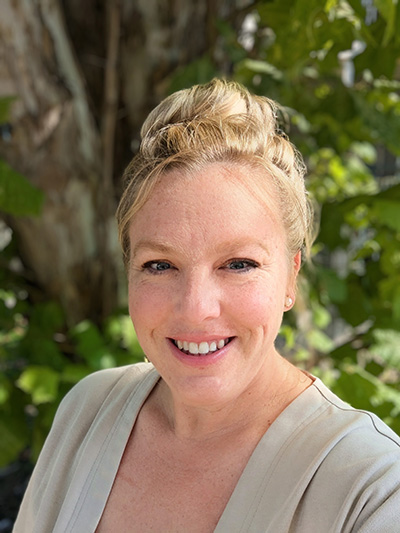
Dr. Emily Tanner
Education
Ph.D., Learning Sciences, Education of Students with Exceptionalities - Georgia State University, 2024
Certification, Development of Gifted and Talented Youth (K-12) - Vanderbilt, 2017
M.Ed., Education of Students with Exceptionalities (K-12) - University of North Florida, 2013
B.A., Journalism and Mass Communication; Advertising - University of Georgia, 2009
Teaching Philosophy
"My teaching philosophy is shaped by years of experience in both P–12 and university settings and inspired by mentors who emphasized lifelong learning. It is built on three foundational pillars. First, I prioritize creating a secure and stimulating learning environment where students feel comfortable exploring ideas, engaging in hands-on activities like realistic case studies, and growing through self and peer reflection. Second, I ensure my students have access to the most current research and evidence-based practices, encouraging them to critically engage with literature and develop innovative, research-informed strategies. Finally, I focus on helping students translate this research into practice through structured coursework and practicum experiences such as mock IEP meetings and parent-teacher conferences. Through this philosophy, I aim to prepare students not only to succeed as teachers but also to inspire and impact their own students in meaningful ways."
Research
Dr. Tanner's current research involves eliciting and analyzing students’ perspectives on their experiences with literacy interventions. This aspect of her research emphasizes understanding and incorporating students' perspectives, experiences, and feedback into the educational process. It highlights the importance of students' active participation in decision-making, curriculum development, and school policies to create a more inclusive and effective learning environment. By valuing student input, educators can gain insights into the challenges and successes of current educational practices, fostering a sense of ownership and engagement among students. This approach enhances the relevance and responsiveness of education and promotes a collaborative school culture where students feel heard and respected. Studies have shown that integrating student voices can lead to improved academic outcomes, higher motivation, and a greater sense of belonging within the school community. The goal of this research is to give value to students’ voices and increase meaningful student participation in interventions.
Outreach
Dr. Tanner's outreach is driven by a commitment to educational equity for underserved and marginalized populations—specifically individuals with reading difficulties and incarcerated youth. Her work focuses on building partnerships with schools, juvenile justice facilities, and community organizations to develop and implement evidence-based literacy interventions that support struggling readers and promote long-term academic and personal success. By bridging research and practice, Dr. Tanner aims to empower educators and service providers with effective tools, advocate for systemic change, and create inclusive learning opportunities that reduce recidivism and improve life outcomes for justice-involved youth. Through outreach, Dr. Tanner strives to amplify the voices of those often overlooked in education and contribute to a more just and accessible system for all learners.
Biography
Dr. Emily Tanner is a dedicated educator and emerging scholar in the field of special education, with a focus on Specific Learning Disabilities (SLD) and literacy. She earned her Ph.D. in Special Education from Georgia State University in December 2024 and brings over a decade of diverse experience teaching students with disabilities across P–12 and higher education settings. Dr. Tanner has successfully taught and supervised undergraduate and graduate students, developing a reputation for translating research into effective classroom practice. Her passion for education was sparked by inspirational early school experiences, which continue to fuel her commitment to creating inclusive, evidence-based learning environments where all students can thrive. As a researcher, she has contributed to the IES-funded Project LIBERATE, gaining extensive experience in grant writing, data collection, professional development, and dissemination. Her scholarly work has been featured in high-impact journals and national conferences, and she has co-authored a chapter in The Handbook of Special Education. Dr. Tanner’s research agenda is grounded in high-incidence disabilities, literacy instruction, and equitable educational practices, aligning closely with her mission to prepare future educators through innovation and interdisciplinary collaboration.
